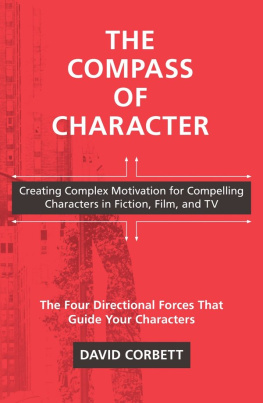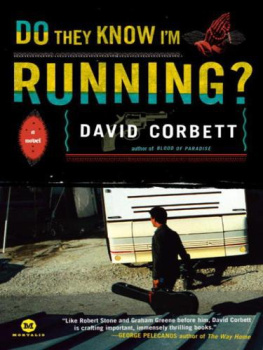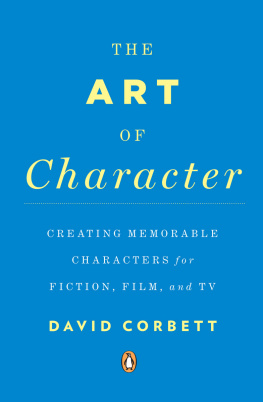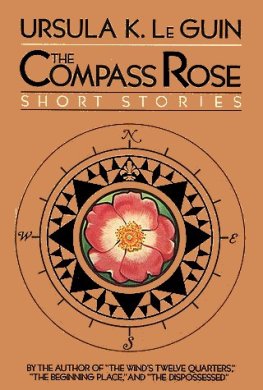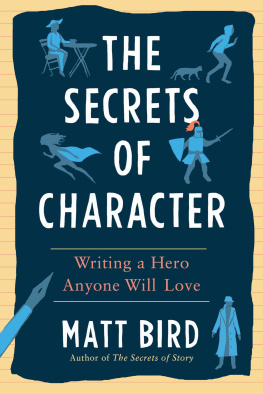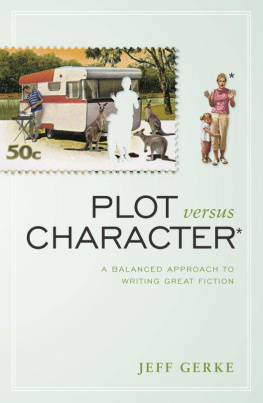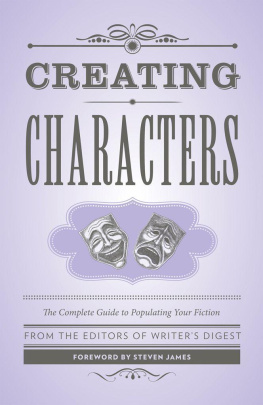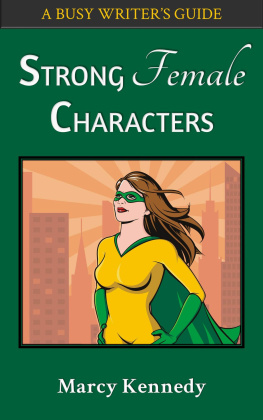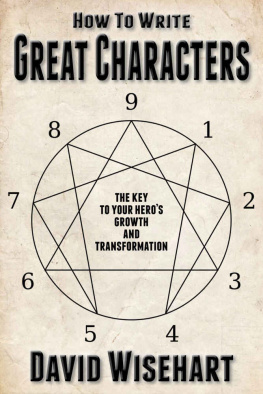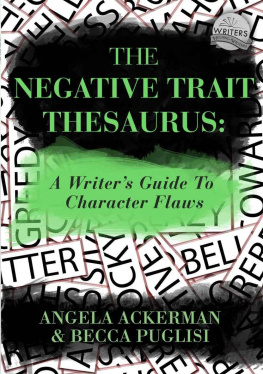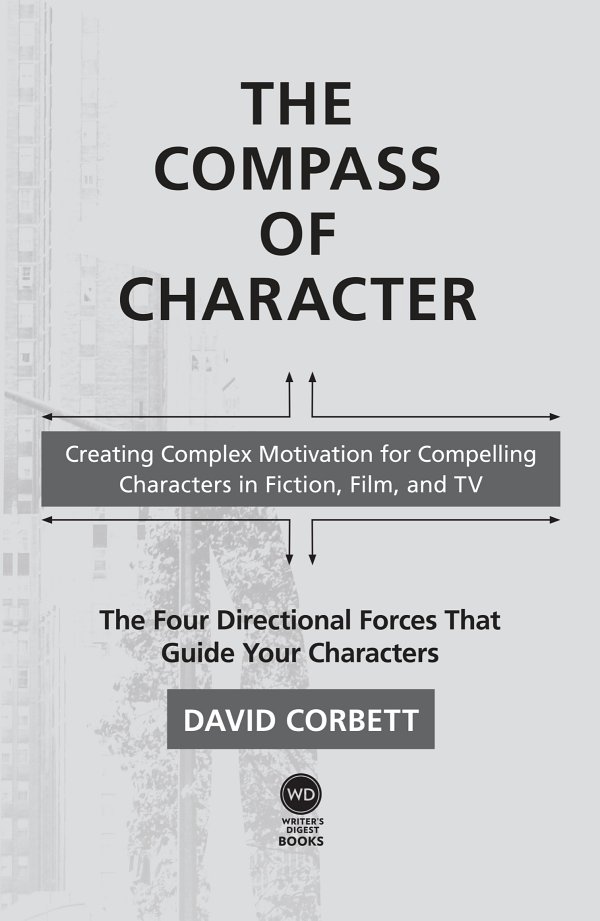One of the best teachers today. Innovative, pragmatic and applicable. I read David Corbett before writing each novel.
Robert Dugoni, New York Times bestselling author of My Sisters Grave
With a deft hand, David takes us past writing clichs, charting a new course forward into developing resonant characters in film and print today. His insights have the potential to revolutionize the way writers understand the characters they develop. If youre serious about your storytelling, dont miss The Compass of Character.
Steven James, bestselling author of Story Trumps Structure
Corbett takes the obtuse, the dense, the high falutin, and he boils it down to practical advice. Every storyteller is trying to find lucid ways to unpack narrative construction, and hes done it flawlessly here. Corbett is a craft ninja.
Joshua Mohr, bestselling author of Sirens
A compass points four ways and so does Corbett, adroitly reconciling the complex interplay of forces in every characters life so that writers can create true depth on the page. His exercises make that complexity doable, and the examples he provides are remarkably incisive. If you want to know what makes made-up characters feel 100 percent real, let The Compass of Character be your guide. David Corbett is the grand master of character development.
Donald Maass, bestselling author of The Emotional Craft of Fiction
You wont find a more thoughtful, more human approach to crafting characters than David Corbetts. Whether youre looking to add nuance and depth to your cast, or to heighten an arc with authentically high stakes, The Compass of Character will point you steadily north.
Jessica Strawser, bestselling author of Not That I Could Tell
The Compass of Character. Copyright 2019 by David Corbett. Manufactured in the United States of America. All rights reserved. No other part of this book may be reproduced in any form or by any electronic or mechanical means, including information storage and retrieval systems, without permission in writing from the publisher, except by a reviewer, who may quote brief passages in a review. Published by Writers Digest Books, an imprint of Penguin Random House LLC. First edition.
www.penguinrandomhouse.com
ISBN-13: 9781440300868
E-ISBN: 9780593188415
Edited by Amy Jones
Version_1
Dedication
For Mette, my Bride
a chuisle mo chro
And in loving memory:
Dr. Arnold Ross, born Arnold Ephraim Chaimovich,
who taught me what it means to teach.
Acknowledgments
The writer who claims to have done it all himself is lying above and beyond the call of duty. A great many people provided invaluable assistance at various stages of this books conception, writing, and publication. Kimberley Cameron and her team deserve credit for getting the manuscript into the hands of the folks at Writers Digest. There, Amy Jones, Kim Catanzarite, and an untold army of others helped hammer this book into final shape, doing so under unusual and challenging circumstances. Thanks to all the folks at Penguin Random House who helped ensure the book made it to press. Everyone at Writers Digest, past and presentspecifically Jessica Strawser, Ericka McIntyre, Taylor Sferra, Tyler Moss, Cassie Lipp, Tiffany Luckeyprovided me a means, both through the magazine and writing conferences, to develop the ideas that ultimately evolved into this book. So too the many teaching and blogging outlets that have granted me a platformspecifically, Therese Walsh and everyone at Writer Unboxed; Gabriela Pereira at DIYMFA; Rob Hart and Rene Asher Pickup at LitReactor; Elaine Petrocelli and all the incredible folks at Book Passage; Susan Page and Paulette Shanklin at the San Miguel de Allende Writers Conference; D.P. Lyle, Kimberley Howe, Taylor Antrim, Christopher Graham and everyone associated with the International Thriller Writers various writing programs; and Steven James, who graciously invited me to join him and Susan May Warren for his Character Conference in Atlanta. I also need to credit three exceptional fellow teachers and writers who have assisted and inspired me at various times: Donald Maass, Robert Dugoni, and James Scott Bell, all of whom abide by the credo: Keep learning. David Ivester no doubt will prove every bit as creative, dogged, and invaluable with this book as he did with my last, and deserves a word of anticipatory thanks for that effort. A word of thanks is long overdue for Arnold Ross, Archie Addison, Ranko Bojanic, Bogdan Baishanski, and all of my professors working with the Ohio State advanced undergraduate mathematics program when I was lucky enough to benefit from their guidance; they taught me what it means to be honest, demanding, and responsible to ones students, and continue to inspire me to this day. Finally, no account of indebtedness would be complete without inclusion of my wife, Mette, without whom yearning would lack all meaning.
About the Author
David Corbett is the award-winning author of the writing guides The Art of Character (A writers bibleElizabeth Brundage) and The Compass of Character. He has published six novels, including 2018s The Long-Lost Love Letters of Doc Holliday, nominated for the Lefty Award for Best Historical Novel. His short fiction has been selected twice for Best American Mystery Stories, and his nonfiction has appeared in The New York Times, Narrative, Bright Ideas, and Writers Digest, where he is a contributing editor. He has taught at the UCLA Writers Program, LitReactor, Book Passage, and at writing conferences across North America and Mexico, and is a monthly contributor to Writer Unboxed, an award-winning blog dedicated to the craft and business of fiction. www.davidcorbett.com
Contents
The Fundamental Methodology of Motivation
Lack
Yearning
Resistance
Desire
Introduction
More often than not, people dont know why they do things.
William Trevor, The Room
THE METHODOLOGY OF THIS BOOKMOTIVATION AS THE COMPASS OF CHARACTER
One hears it trumpeted at every writers conference, in every seminar and workshop, in every creative writing class: The fundamental question for every characterin every scene of every storyreduces to this: What does she want?
And yet, like all simple and straightforward truths, no sooner is this one stated than objections, rebuttals, and counterexamples emerge. How long does the reader have to wait before gaining so much as a glimpse of what Holden Caulfield actually wants in The Catcher in the Rye? And isnt it possible that the real motives for all of the characters in Harold Pinters The Homecoming lie beneath so many strata of denial and deceit that they arguably dont exist?
Add to this the quote from William Trevor above, which suggests that people are often blind to why they act as they do, implying not only their intentions but their ends remain obscure as well. Worse still, all too often those seemingly most confident of their true desires prove to be wildly mistaken.
Oversimplifying the answer to that questionwhat does the character wantby limiting it to a single goal or objective typically generates facile, formulaic, unsatisfying results.
In

